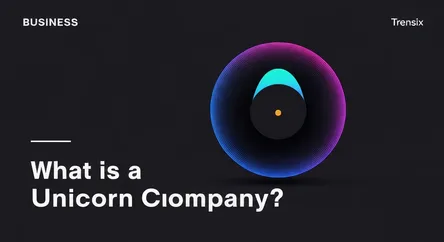Business
What is a Unicorn Company?

Discover what a unicorn company is: a privately held startup valued at over $1 billion. Learn why they're trending and their impact on the market.
What is it?
A 'unicorn' in finance is not a mythical creature, but a privately held startup company with a valuation of over $1 billion. The term was coined by venture capitalist Aileen Lee in 2013 to emphasize the rarity of such successful ventures. Unlike public companies traded on a stock exchange, a unicorn's value is determined during rounds of funding from private investors and venture capital firms. These companies often operate in the technology sector, with famous examples including SpaceX and Stripe before they potentially go public.
Why is it trending?
The proliferation of unicorns is driven by a surge in private capital available to startups, allowing them to grow massively without the regulatory burdens of an Initial Public Offering (IPO). This 'stay private longer' trend is fueled by investors seeking high-growth opportunities. Additionally, rapid technological advancements and digital platforms enable companies to scale globally at unprecedented speeds. The media attention and prestige associated with reaching unicorn status also create a self-perpetuating cycle, attracting more talent and funding to aspiring startups.
How does it affect people?
Unicorns impact society by introducing disruptive technologies and services that can change consumer behavior, from how we shop to how we manage finances. For employees, particularly early hires with stock options, a successful unicorn can create significant personal wealth. For investors, they offer the potential for massive returns, albeit with high risk. However, the pursuit of unicorn status can also foster a 'growth-at-all-costs' culture, potentially leading to market instability, unsustainable business models, and significant job losses if the bubble bursts.